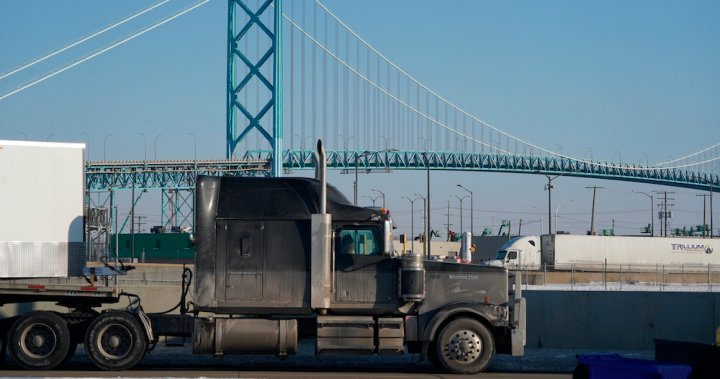
Ambassador Bridge blockades will have ‘lasting effect’ on supply chain, experts say
Global News
Blockades at the Ambassador Bridge will have significant impacts on the flow of consumer goods into Canada and on the automotive sector on both sides of the border, experts say.
A slew of consumer goods and time-critical supplies will be disrupted by even short-term blockades at the Ambassador Bridge, experts say, as the protests in solidarity with the so-called “Freedom Convoy” stretch into a third day.
Traffic delays continue Wednesday at the bridge connecting Windsor, Ont., to Detroit, Mich., as 50 to 70 vehicles are blocking off parts of the busy border crossing, though traffic into Canada from the U.S. resumed Tuesday.
Protests are also ongoing at the Coutts, Alta., border crossing and on highways surrounding Canada-U.S. border crossings in Ontario, as well as in downtown Ottawa.
The Ambassador Bridge is a critical trade link for Canada and the U.S.
It’s the busiest land border crossing in North America with up to 10,000 trucks travelling across the bridge daily, representing a quarter of all commercial trade between the countries, according to Fraser Johnson, professor of operations management at the Ivey Business School.
Daily, the Ambassador Bridge is responsible for $350 million to $400 million worth of goods, he says.
With such a significant volume of goods relying on the bridge, the impacts of a shutdown would be felt in every aspect of the economy, Johnson says.
That includes fresh produce grown in states such as California, which becomes increasingly critical in Canada’s cold winter months. Electronic and other consumer goods would also face delays.
